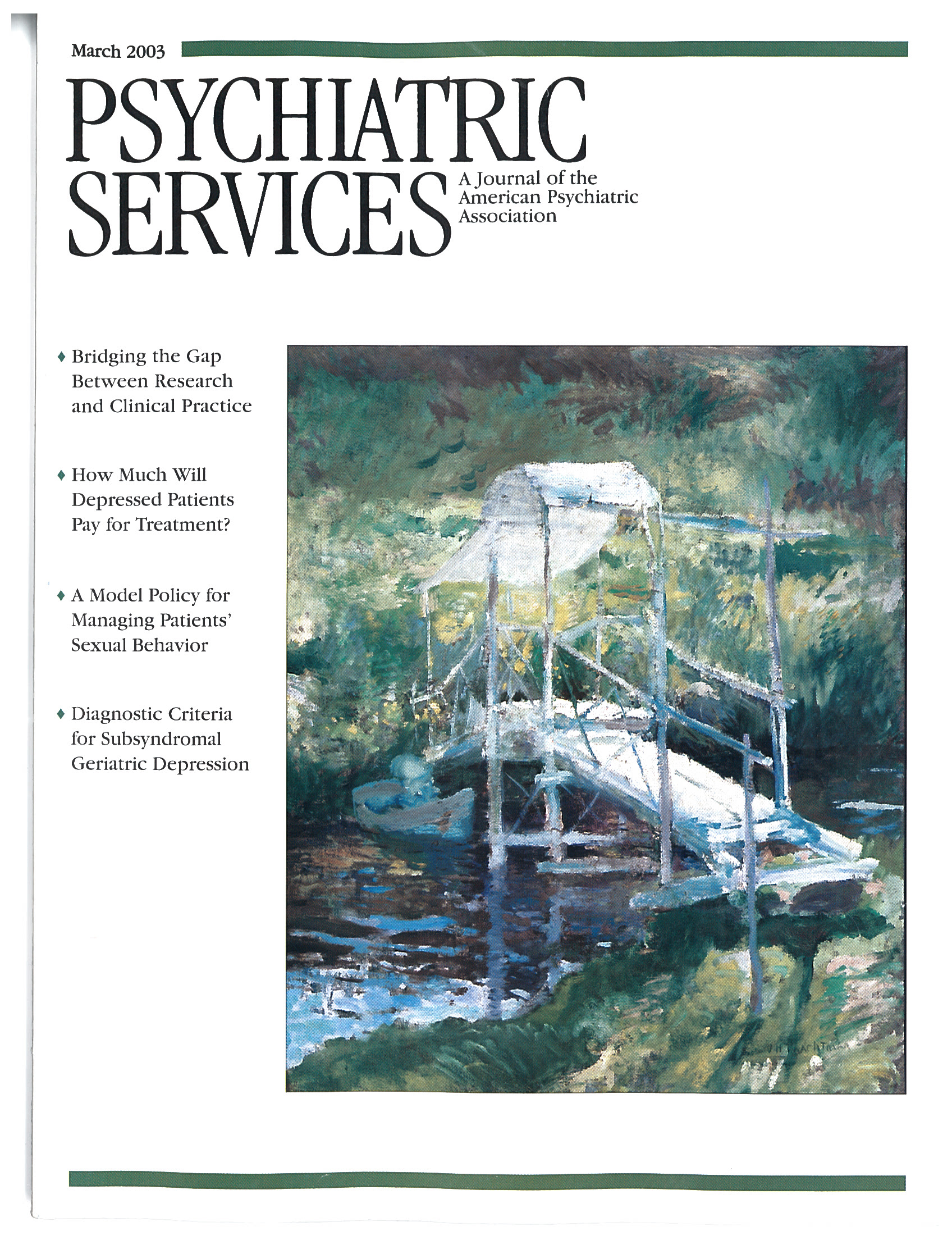At first glance, I thought this volume promised an exposition of the range of psychosocial interventions for the severely mentally ill, such as were recently reviewed by Drake and colleagues (
1). Perusal of the index of
Treating Chronic and Severe Mental Disorders: A Handbook of Empirically Supported Interventions suggested I might have been correct in my assumption, given that several chapters have been written by highly respected researchers, even luminaries, in the field of psychological treatments for this population. Ian R. H. Falloon writes on cognitive-behavioral family therapy and about his work on expressed emotion and family education in the treatment of schizophrenia and related illnesses. Sarah Pratt and Kim T. Mueser address social skills training; Gerard E. Hogarty, personal therapy; Nicholas Tarrier and Gillian Haddock, cognitive-behavioral therapy for schizophrenia; David J. Miklowitz, family-focused therapy for bipolar disorder; Teresa Whitehurst, Maria Elena Ridolfi, and John Gunderson, multiple family groups for borderline personality disorder; and Kelly Koerner and Marsha M. Linehan, dialectical behavior therapy.
This is an impressive list, and on that basis alone I can recommend this book to all mental health professionals working with this population. The authors provide historical and theoretical backgrounds as well as reviews of relevant research for these interventions, which represent the best evidence-based—though, as the authors emphasize, rarely implemented—treatments available. The chapters by Pratt, Tarrier, and Falloon and their coauthors stand out for their thoroughness and generosity in providing clear clinical guidance. Reading and teaching from books such as this will further the needed implementation of the practices and principles therein described.
The book's editors, Stefan G. Hofmann and Martha C. Tompson, indicate in their introduction that their purpose is slightly different from the one I inferred from the book's title. Both editors are psychologists and members of the faculty at Boston University. Their aim, a worthy one, is twofold: to disseminate information about the state of the art in psychological treatments for difficult populations—not limited to the usual sense of severe mental illness—and to influence training practices in graduate psychology programs in the United States, which, in their view, still give short shrift to these empirically based treatments.
Accordingly, Treating Chronic and Severe Mental Disorders includes a thorough and well-written chapter on interpersonal psychotherapy for unipolar and bipolar disorders, by Holly A. Swartz and coauthors; several chapters on substance abuse treatment strategies; and a handful of chapters on assorted subjects, such as adolescent suicide risk. Some of these latter chapters are weak, and some lack even a modicum of substantiation of the "empirically based" qualification the editors espouse, leaving me to wonder why these chapters were included at all.
Regarding editorship, it is incumbent in a book of this sort to carefully detail the controversies and qualifications surrounding the term "evidence-based." The editors of this volume have not addressed this issue, mentioning it only in passing. Several of the authors do self-critique, but they are understandably positive about their own efforts. It is the editors' place to include objective commentary rather than a travelogue-like description. The importance of this principle is underscored by recent articles on controversies about the evidence base for cognitive-behavioral therapy (
2), multiple family group therapies (
3), and social skills training (
4). However, this criticism does not diminish the value of this work and its importance to clinical practice.

